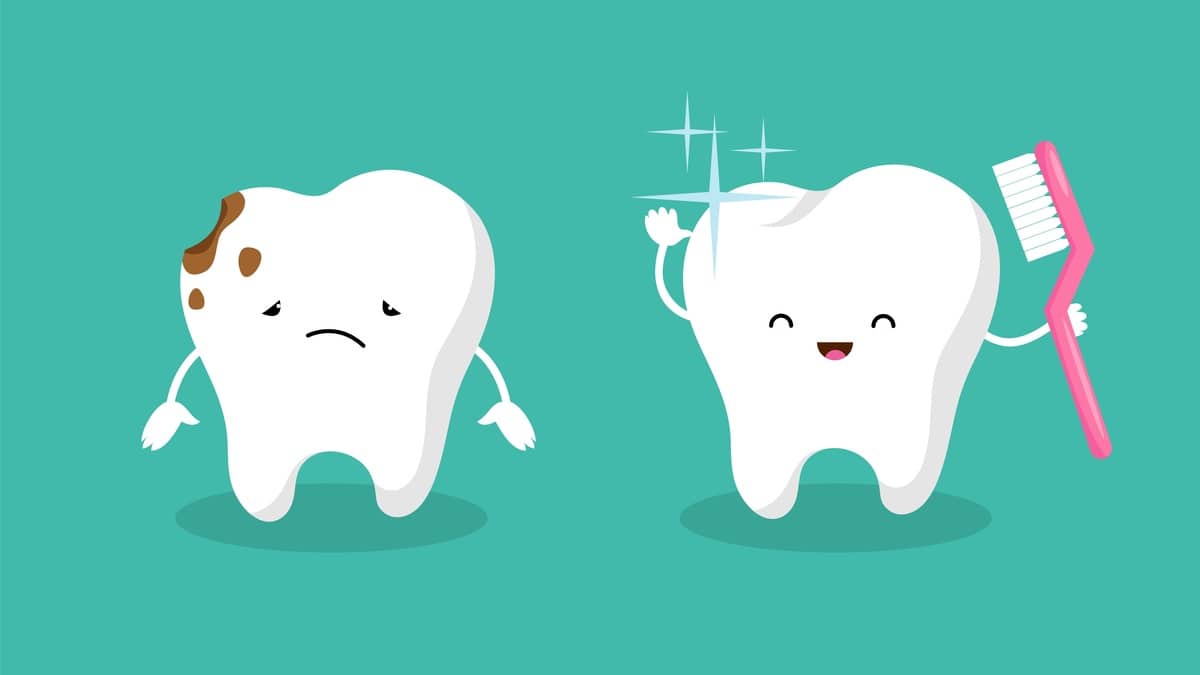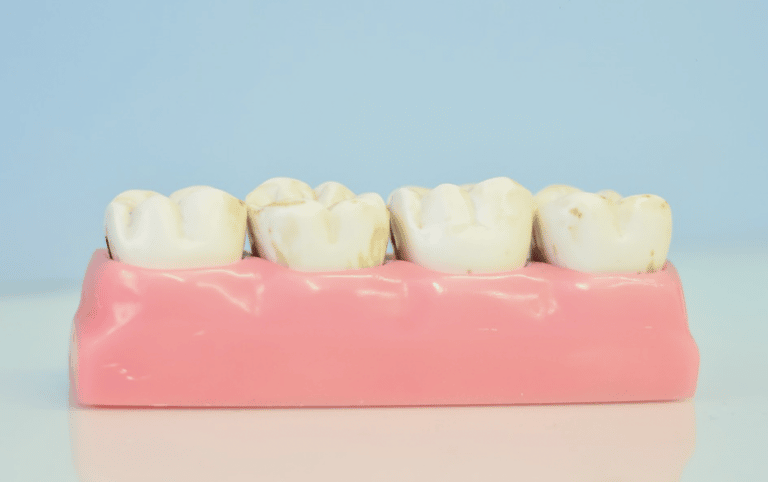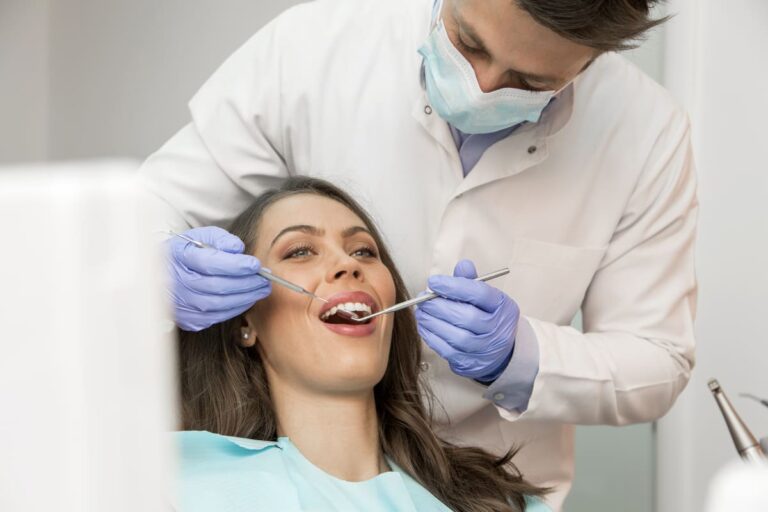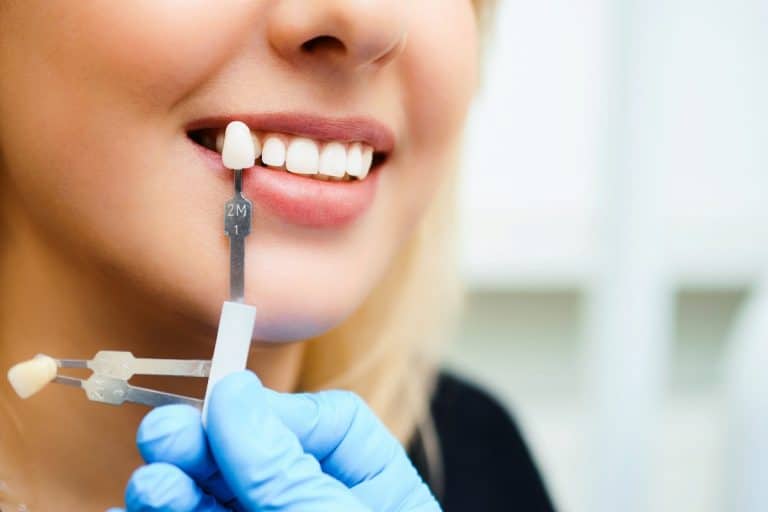Oral health care needs to be taken regularly. Keeping the good habit of maintaining a proper oral health routine on an everyday basis is a healthy and hygienic way of living life. Having great teeth gives you the confidence to beautifully smile without any self-consciousness or discomfort.
Oral hygiene begins at home. It is the daily steps that you need to follow to ensure minimal visits to the dentist in the occurrence of any oral discomfort. Neglecting oral health can be troublesome and painful as you grow older.
Tooth and gum decay, tooth cavities, bad breath, discolouration, blackening, etc. are some of the problems you will face as a result of poor oral hygiene. After that, a visit to the dentist will be expensive, time-consuming, and painful.
That is why, you should properly follow these steps to improve your oral hygiene routine –
In This Article
- 1. Brush Twice Daily
- 2. Avoid Sugar in Your Diet
- 3. Floss Regularly
- 4. Toothbrush and Toothpaste
- 5. Consider eliminating Caffeine Goods
- 6. Say No to Tobacco, Alcohol
- 7. Schedule Regular Appointments with Your Dentist
- 8. Use Mouthwash and Gum
- 9. Consume a Healthy Diet
- 10. Brush your Teeth with Pure and Filtered Water
1. Brush Twice Daily
Brushing should be made a compulsory part of your everyday routine. It is advised to brush twice daily by the dentists. Too much brushing can corrode the teeth and gums over the years. So over brushing is also not advised. The practice of daily brushing your teeth keeps your mouth clean.
When you brush your teeth, the food particles get removed from your teeth and gums. Brushing prevents tooth decay and cavities and prevents gum disease. Also do not forget to clean your tongue properly to get rid of the formation of bacterial layers over your tongue.
Brushing is more effective when it is done correctly. Make sure to reach every nook and corner inside of your mouth while brushing your teeth. Use circular motions over your teeth. Make sure to give extra effort in cleaning the molars and premolars as they do most of the chewing of your food. So in turn they tend to get cavities more often than the other teeth.
2. Avoid Sugar in Your Diet
Sugar intake in the diet causes maximum damage to the teeth and gums than any other dietary food supplement. Sugar content is an ingredient in sweet food like candies, desserts, and many other processed foods. When you consume sugar then it reacts with the harmful bacteria in your mouth and which feeds from the sugar, creating cavities and weakening the tooth enamel.
While having food with added sugar or sipping into sugary drinks, try taking them at a minimal rate rather than feeding on it throughout the day. Constantly when your mouth is exposed to sugar, the bacteria in your mouth feed on it as a form of food source and these harmful bacteria attack the minerals in your teeth to form cavities and decay your gums.
Also, food that has starch content such as bread and pasta break down into simple sugar and is a source of nutrient for the acid-producing bacteria which causes tooth decay.
3. Floss Regularly
Flossing your teeth is as important as brushing them. Floss between your teeth properly and regularly. Floss after every meal if and when possible. Flossing not only removes the food particles from between your teeth but also stimulates your gums, helps to prevent plaque, and lowers inflammation in the area. Flossing reduces the possibility of harmful bacteria feeding on the leftover food in your mouth after every meal.
If flossing of your teeth leads to bleeding of the gums, then consult with your dentist for any possible gum disease from which you are unknowingly suffering. Flossing is an integral part of proper dental hygiene.
4. Toothbrush and Toothpaste
Use a soft-bristled toothbrush while brushing. A hard-bristled toothbrush can damage your tooth enamel and gums making them weak and leading to immense dental pain over time. Cover your brush with a brush cap after you are done brushing your teeth. Make sure to keep your brush dry to avoid the clotting of bacteria and fungus around the bristles of the brush. Do not be reluctant to replace your brush with a new one after every few weeks or months.
Do not put in harsh stokes when you brush. Do not brush too often. Practice brushing gently by taking your time. Brush for at least 30 seconds at one single corner of your mouth. Keep in mind to rinse and clean your toothbrush holder once in a while.
If you have sensitive teeth then consult with your dentist to get a prescribed toothpaste that would soothe your teeth and gums after brushing. Preferably use a toothpaste that has fluoride content in it. Use toothpaste with natural ingredients and fewer chemicals added to it.
5. Consider eliminating Caffeine Goods
Food products that contain caffeine can wear out the enamel of your teeth as it is acidic. These dark-coloured beverages get stuck around the teeth and lead to discolouration. These stains may not come off even after rigorous teeth whitening. So it is advisable to consume such beverages with a straw to avoid contact with teeth. Down the line, these products add in the decaying of the tooth enamel and tooth breakage.
To prevent tooth problems caused by caffeinated goods, switch to citrus drinks like fresh fruits juice and milkshakes, or better yet make a habit of drinking water instead. Drinking water is healthy for your body and will keep you hydrated and active.
6. Say No to Tobacco, Alcohol
Tobacco products like cigarettes are injurious to health. It causes mouth and lung cancer. It weakens the body’s immune system. The healing process of the human body becomes slower with regular consumption. Along with the body, it also affects the teeth enamel, and gums making them stained and weak. This leads to bad breath. People who are addicted to smoking over a long period of time might face facial disorientation over time and lose their teeth from weakening very early in their life.
Alcohol is another beverage that stains and discolours the teeth. Excessive consumption or regular consumption of alcohol is fatal to your health. It damages the organs of the body. Weakens the nerves of the body. It is advised to consider the consumption of alcohol once in a while than regular consumption or addiction.
7. Schedule Regular Appointments with Your Dentist
Visit your dentist at least twice a year. Follow the procedures, guidelines, or advice given by your dentist. Do not delay or neglect any dental discomfort over long periods of time. Consult your dentist at the earliest possible time once you figure out that something is wrong in your dental area.
It is a benefit for you if your dentist has a record of your family’s dental health. Make sure that the clinic of your dentist is nearby to your home or workplace. This will help you to follow up on regular dental check-ups and also ensure that your dentist is within the reachable distance in case you are in a dental emergency.
Be smart and cautious while choosing a dentist. Find information about their specializations and experience through the internet. Schedule a few quick appointments with the dentist and get a personal experience on how they treat their patients and how good are they at their profession.
“It is very important for a dentist to take the time to listen to the patient’s needs and answer any questions they might have,” says Winter Family Dental, a dentist clinic in Arvada, Colorado. As such, you should always read the reviews about their patient care and hospitality on the Internet. You can also know about a dentist by meeting with their former or present patients.
Dental check-ups can be really expensive in case of emergencies and accidents. So make sure to get dental health insurance that can cover your bills causing you no discomfort without making a hole in your pocket.
8. Use Mouthwash and Gum
Make a habit of rinsing your mouth with a mild antibacterial mouthwash after every meal. Check the ingredients of the mouthwash before purchasing and do not get one with added sugar. It decreases the probability of the growth of bacteria attacking your teeth and gums. It helps to give you no odour and fresh breath. Mouthwash kills the harmful oral bacteria from forming inside of your mouth.
Chewing gum after a meal helps to stick the food particles out of the ridges of your teeth. Do not consume any gum available in the market. Get a sugar-free gum that will help you in reducing the number of bacteria in your mouth and help the salivary flow in your mouth to stimulate.
9. Consume a Healthy Diet
Eating a healthy diet is not only essential but it keeps your body healthy and enhances your immune system which decreases the rate of your body giving way to fatigue or sickness. Make sure to keep your diet full of fruits, nuts, greens, and other nutritious food. Healthy and nutritious food not only keeps you healthy but also stimulates your gums and helps in fighting tooth cavities.
Black and green tea can help prevent the plaque bacteria inside the mouth from multiplying.
Fluoride when dissolved with water helps in removing plaque from getting stuck around the teeth. Fibre-rich food helps to maintain the teeth and gum to keep them in a good and healthy condition. They act as a great defensive agent against gum diseases and cavity formation. Fibre-rich food items also help in restoring the mineral which is lost due to the formation of oral bacteria inside of the mouth.
Another essential food for maintaining strong and healthy teeth is the consumption of milk. Milk contains calcium and phosphate which are healthy chemicals for having good dental health. Milk products like cheese, paneer, and curd help in the faster rebuilding of tooth enamel which keeps the teeth strong and sturdy.
10. Brush your Teeth with Pure and Filtered Water
The water that you use at home is underground water which contains chemicals and minerals depending on the soil of your area. Even after rigorous filtration, the groundwater may still contain fractions of those chemicals and minerals. Some of these particles are not good for your oral health and lead to decaying gum and tooth cavities. Minerals like iron also stain the teeth and it almost never comes off.
Use a significant water filter to clean your mouth and while brushing. Or you can buy mineral water to serve the purpose. You can also use fluoridated water which helps in removing plaque from the teeth.
Conclusion
Keep in mind to take proper care of your dental health. Follow a regular oral hygiene routine. Do not miss the routine or take it for granted. Healthy oral health also helps to maintain a healthy body.
The food that your intake is what gives you energy and boosts your immune system. To avoid dry mouth drink plenty of water, chew on sugarless gum, and avoid tobacco products and alcohol. Stop smoking. Stop taking caffeinated beverages. Visit the dentist if you have a sudden change in taste.
Brush and floss every day. Use mouthwash and chewing gum to keep the bacteria at bay. Replace your toothbrush after using it for a while. Use tongue cleaner to clean the formation of bacteria over your tongue. Overall, keep a hygienic environment while keeping cleaning your mouth.










![Home Renovation Guide [2025]](/app/uploads/2021/04/design-hacks-1-378x300.jpg)
